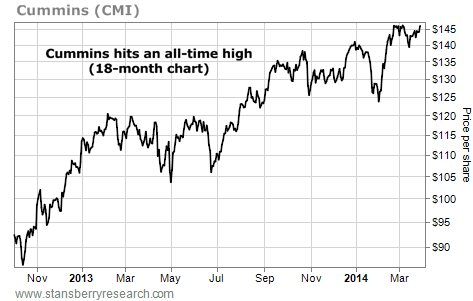| Home | About Us | Resources | Archive | Free Reports | Market Window |
NEGATIVE Interest Rates Are ComingBy
Tuesday, April 1, 2014
Would you pay a bank to hold your money for you?
That's what happens when interest rates are negative.
The idea of negative interest rates sounds insane... Who would put their money in the bank to earn a NEGATIVE interest rate?
Could we really see negative interest rates? And if we did, what would that mean?
I will try to answer these questions today...
When you think about it, the immediate results of negative interest rates are pretty obvious...
This is what happens when interest rates are "artificially" lowered below zero. (When I say "artificially," I mean when the central bank sets rates below zero.) The trouble comes – of course – when the policy is reversed. Then all those assets that were bought with borrowed money fall in price, and everyone that borrowed too much goes bankrupt.
You might think that no country in its right mind would move interest rates below zero...
You would be wrong...
Denmark moved interest rates below zero in 2012. They are still below zero today.
Guess what? The people of Denmark are the most indebted people on the planet.
Now the rest of Europe is thinking of following Denmark's lead and cutting interest rates below zero... Switzerland talked about lowering interest rates below zero last week. And the European Central Bank last week explained that negative interest rates were a pretty attractive option.
In short, much of Europe could see negative interest rates – soon.
What will happen then? You already know... Savers will get clobbered. People will borrow money. And asset prices will go up.
So what should you do?
Own assets. Own stocks and real estate, both in Europe and in the U.S.
Know that you will sell those assets someday. You know that the rise in asset prices will be built on ultra-low (and potentially negative) interest rates around the globe. And you know that those ultra-low interest rates will have to end someday. You don't want to go down with the ship.
We may have a long time before we have to sell...
Last week, The Economist magazine wrote that "markets don't anticipate the European Central Bank [raising interest rates] back to 2% until at least 2020."
So don't worry just yet.
I could be wrong of course. But I believe that this is still a time to be playing offense, not defense.
There will be a day to play good defense. But we're not there yet...
In my opinion, now is a time to make money. Central banks around the world have interest rates at zero (like the U.S.) or less (like Denmark... and potentially the rest of Europe).
Let's take advantage of it!
Good investing,
Further Reading:
"I've written for years that I expect housing prices to soar higher than anyone imagined, and it will happen faster than anyone imagined," Steve writes. But now that housing prices have soared, is it time to sell? Steve says he's still buying... and you should, too. Get all the details here.
Market NotesA TOP "REAL-WORLD INDICATOR" HITS RECORD LEVELS Our "high-horsepower" indicator closed out the first quarter of the year at record levels... And it's a good sign for the global economy.
Over the last few years, we've featured the charts of dozens of "real-world indicators." These are key global businesses, like home improvement store Home Depot and payroll processor ADP. Following the profits and share prices of these companies can tell you a heck of a lot more about the economy than any government official can.
That's why we always keep an eye on Cummins... the world's largest independent maker of high-horsepower diesel engines. Cummins' engines power bulldozers, cranes, heavy trucks, mining shovels, and electrical generators. So when the pace of the global economy picks up, shares of Cummins usually do as well.
Over the last 18 months, Cummins shares rose from $92 to nearly $150... a 62% gain. And just yesterday, they jumped more than 2% to an all-time high. The big trend in our "high-horsepower" indicator is UP... And it's another real-world sign that the global economy is on the right track.
 |
Recent Articles
|


